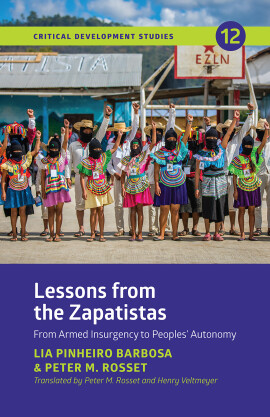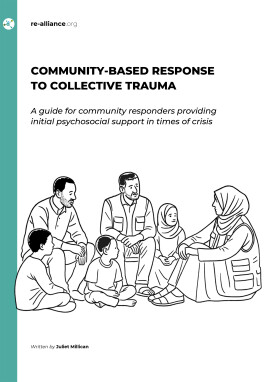
Reflecting Forewords
Reflecting Forewords is an unashamedly ambitious book. Full of lessons from the past that are relevant for the future, it is a compilation of inspiring forewords from books written by Robert Chambers; one of the most influential and prolific scholars to write about participation, poverty, and knowledge in development studies. Tessa Lewin, Robert’s colleague and an experienced practitioner and researcher, has worked with Robert to weave together the forewords alongside a series of reflections from other practitioners and scholars in the field.
In our world of dramatic unforeseeable change, Reflecting Forewords seeks to draw lessons and present insights that should not be ephemeral, but can contribute on a lasting way to policy, practice and research in the rest of our 21st century. Readers will draw their own conclusions. The orientation is forward-looking into our unpredictable future, stressing the need to be alert, in touch, nimble, and guided by reflexivity.
This curated collection of resurfaced gems will inspire development professionals, teachers and graduate students of development studies, policymakers, historians of development thinking and practice, activists, and all those who are concerned with a better life for all.
Published: 2024
Pages: 140
eBook: 9781788534086
Paperback: 9781788534062
Hardback: 9781788534079
In our world of dramatic unforeseeable change, Reflecting Forewords seeks to draw lessons and present insights that should not be ephemeral, but can contribute on a lasting way to policy, practice and research in the rest of our 21st century. Readers will draw their own conclusions. The orientation is forward-looking into our unpredictable future, stressing the need to be alert, in touch, nimble, and guided by reflexivity.
This curated collection of resurfaced gems will inspire development professionals, teachers and graduate students of development studies, policymakers, historians of development thinking and practice, activists, and all those who are concerned with a better life for all.
| Foreword, Melissa Leach | |||
|---|---|---|---|
| Introduction | |||
| The themes | |||
| Foreword to Imposing Aid: Emergency Assistance to Refugees (1986) by B. E. Harrell-Bond | |||
| Reflections from Priya Deshingkar | |||
| Editorial introduction to IDS Bulletin Vulnerability: how the poor cope (1989) | |||
| Reflections from Naila Kabeer | |||
| Reflections from Keetie Roelen | |||
| Forewords to Beyond Farmer First (1994) and Farmer First Revisited (2009) | |||
| Reflections from John Thompson | |||
| Foreword to South African Participatory Poverty Assessment (1997) | |||
| Reflections from Keetie Roelen | |||
| Foreword to the Japanese translation (2000) of Whose Reality Counts? Putting the First Last (1997) | |||
| Reflections from Rosemary McGee | |||
| Foreword to Myth of community: Gender issues in participatory development (1998) by Irene Guijt and Meera Kaul Shah | |||
| Reflections from Andrea Cornwall | |||
| Foreword to Stepping Forward: children and the future (1998) by editors Victoria Johnson, Edda Ivan-Smith, Gill Gordon, Pat Pridmore, and Patta Scott | |||
| Reflections from Michael Gibbons | |||
| Forewords to Who changes? Institutionalizing participation in development (1998) by editors James Blackburn and Jeremy Holland, and Whose voice? (1998) by editor Jeremy Holland | |||
| Who changes? Institutionalizing participation in development (1998) | |||
| Whose voice? (1998) | |||
| Reflections from Jeremy Holland | |||
| Foreword to In the Hands of the People, selected papers of Anil C. Shah (2001) | |||
| Reflections from Sachin Oza | |||
| Foreword to the Japanese translation of Participatory Workshops (2003) | |||
| Reflections from Jo Howard and Patta Scott-Villiers | |||
| Draft foreword to How to Design a Training Course: a guide to participatory curriculum development (2003) by Peter Taylor | |||
| Reflections from Peter Taylor | |||
| Foreword to The Ripped Chest (2004) by Harsh Mander | |||
| Reflections from Harsh Mander | |||
| Foreword to Exploring the Science of Complexity: Ideas and implications for development and humanitarian efforts (2008). by Ben Ramalingam and Harry Jones with Toussaint Reba and John Young | |||
| Reflections from Marina Apgar | |||
| Foreword to Seasonality, Rural Livelihoods and Development (2011) edited by Stephen Devereux, Robert Chambers, Rachel Sabates-Wheeler, Richard Longhurst | |||
| Reflections from Stephen Devereux | |||
| Afterword in Who Counts? (2013) by editor Jeremy Holland | |||
| Reflections from Jeremy Holland | |||
| Foreword to Poverty and development in China: alternative approaches to poverty assessment (2013) by Caizhen Lu | |||
| Reflections from Tami Blumenfield | |||
| Foreword to Wellbeing and Quality of Life Assessment: A practical guide by Sarah C White, Asha Abeyasekera (2014) | |||
| Reflections from Rosalind Willi | |||
| Reflections from Jackie Shaw | |||
| Foreword to Participation Pays: Pathways for post 2015 (2015) edited by Tom Thomas and Pradeep Narayanan | |||
| Reflections from Tom Thomas | |||
| Preface to Can We Know Better? Reflections for development (2017) by Robert Chambers | |||
| Reflections from Jamie Myers | |||
| Foreword to Adventures in the Aid Trade by Richard Holloway (2020) | |||
| Reflections from Richard Holloway | |||
| Failing forwards by Tessa Lewin | |||
| Knowing better | |||
| Doing better – towards radical equality |
'This book offers a fascinating tapestry of reflections on different themes at the centre of Robert Chambers’ work over many decades. As a conversation between Robert and many diverse collaborators, the book provides an important commentary on many of today’s big challenges for development. The book is a real treasure trove of interesting insights – a must-read for anyone interested in poverty, power, participation and progressive change.'
Ian Scoones, Institute of Development Studies and co-editor of 'Revolutionizing Development: Reflections on the Work of Robert Chambers'
‘A creative and unique collection which offers a fascinating journey through four decades of development thinking and practice. Readable, enjoyable and insightful!’
John Gaventa, Professor, Institute of Development Studies
‘Robert’s forewords reveal his deep humanity, concern for those that are systematically excluded from social and economic processes that are central to their survival, and keen awareness of the human generated systems that generate these inequities. Yet they also reveal his awareness of how outdated worldviews and paradigms favor the status quo, are hidden in plain sight in the form of “normal professionalism” and how they can be disrupted through critical participatory methodologies. Most importantly, his forewords reveal his own humility and constant recognition of what he doesn’t know and needs to learn, which gives us as readers permission to “not know” so that we might learn and give space for others to know. After giving Robert a cartoon zine recently that was inspired by his influence on my practice, perplexed, Robert asked me the question “does it self-spread, can it self-spread?” While I will bring this beautiful challenge to my work moving forward, I can say that indeed his ideas do and will continue to self-spread through this volume, as those of us who have had the privilege to know him and his ideas, will continue to take them forward through our community engagement praxis.’
Alfredo Ortiz Aragón, Co Author of Action Research, 5th Edition (with Ernie Stringer)
Robert Chambers Robert Chambers is widely recognized as one of the main driving forces behind the great surge of interest in the use of Participatory Rural Appraisal around the world. He has been a Fellow at the Institute of Development Studies since 1972 and is an author, co editor and contributor of many books.
Tessa Lewin Tessa is a Research Fellow at IDS. She is a development professional with over 20 years of experience working on participatory action-research projects both as a researcher and visual practitioner.






